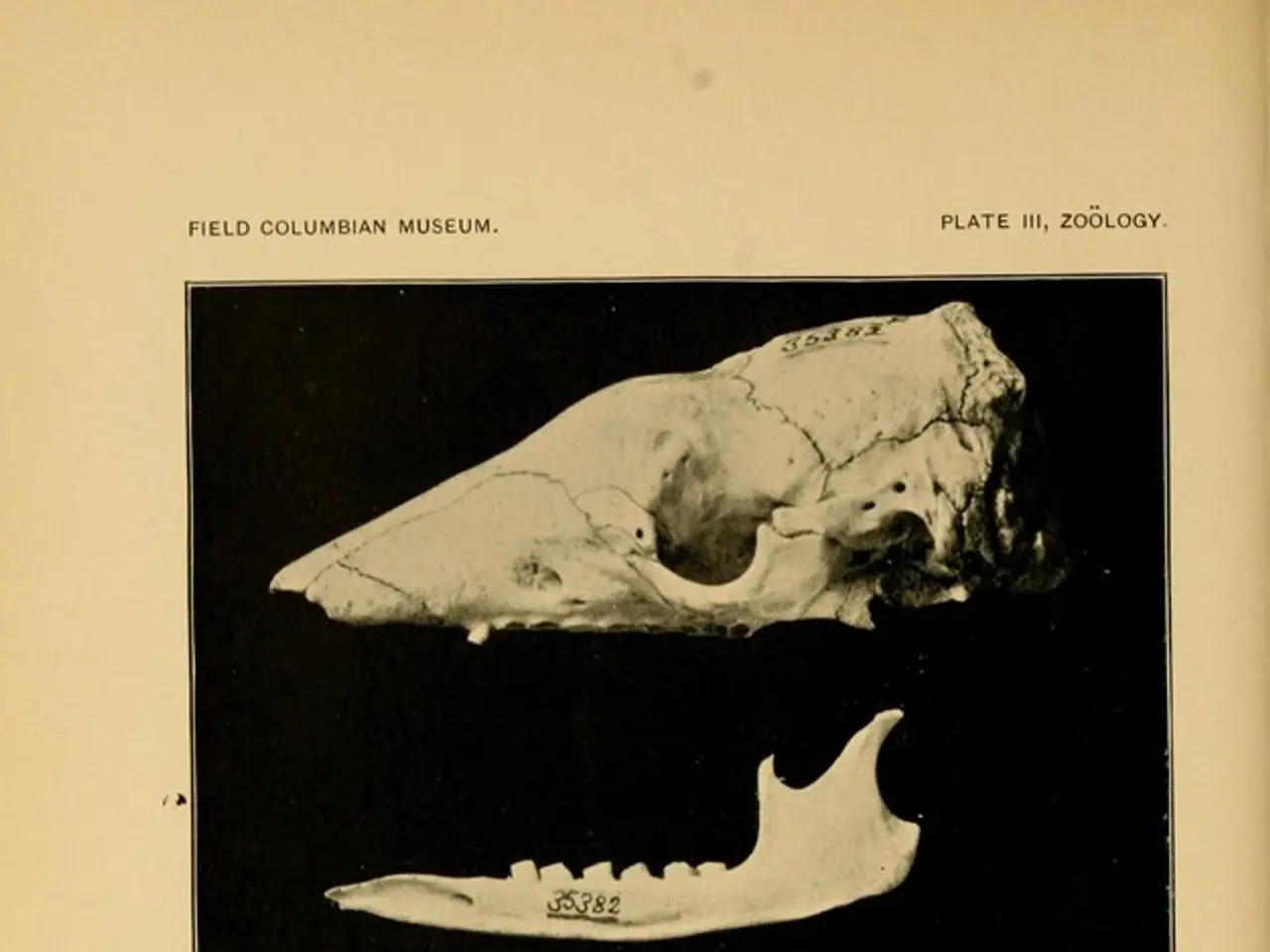Middle-aged women experiencing signs of osteoporosis: Recognition and Remedies
Middle-aged women can significantly reduce their risk of developing osteoporosis, a disease that weakens bones and makes them susceptible to fractures, by adopting a holistic approach to prevention. While a calcium-rich diet, vitamin D supplementation, regular exercise, and bone health screenings are essential, there are additional strategies that can further bolster one's defences against this condition.
One crucial aspect is fall prevention and home safety. Fractures often result from falls, so reducing fall risk is critical. This can be achieved by removing tripping hazards, improving home lighting, and installing handrails or grab bars in bathrooms. Wearing proper, non-slip footwear also reduces fall risk.
Balance training, such as activities like tai chi and targeted balance exercises, improves stability and reduces falls, thereby lowering fracture risk.
Avoiding smoking and limiting alcohol intake is also important. Smoking negatively affects bone renewal, while excessive alcohol impairs bone health and increases osteoporosis risk.
Medication review is essential. Some medications increase fall risk or affect bone health. Consulting a physician to review current medications can help manage these risks.
Regular medical evaluation, including bone density screening (DEXA scan), helps detect osteoporosis early and guide treatment decisions. Doctors can recommend medications or treatments if needed, especially for women with risk factors or related medical conditions.
Managing underlying medical conditions known to raise osteoporosis risk, such as kidney/liver disease, inflammatory bowel disease, lupus, is also important.
In summary, middle-aged women can complement diet and exercise with fall prevention measures, balance training, lifestyle modifications such as quitting smoking and limiting alcohol, medication review, medical monitoring including bone density scans, and managing any relevant medical conditions to effectively prevent osteoporosis and related fractures.
It's important to note that osteoporosis cannot be reversed or cured, but it can be managed with medications, diet, and exercise to prevent further bone loss. Early detection of osteoporosis is crucial for initiating appropriate treatment and preventive measures, and bone density tests such as DXA scans are recommended for women aged 65 and older, as well as younger women at higher risk for fractures.
Caregivers can play an essential role in supporting the bone health and overall well-being of someone with osteoporosis by serving a strong diet, assisting with medication management, promoting fall prevention, supporting exercise routines, and providing emotional support.
Living with osteoporosis doesn't mean the end of an active and fulfilling life. Proper management and lifestyle adjustments can minimize its impact and maintain independence.
- Middle-aged women should focus on more than just physical health for osteoporosis prevention, incorporating mental health, entertainment, style, and skin care into their routine.
- Maintaining good mental health is vital during the menopause transition, as it can influence overall well-being and osteoporosis risk.
- Today's middle-aged women face various chronic diseases such as type-2 diabetes, respiratory conditions, chronic kidney disease, and digestive health issues.
- A healthy diet, rich in essential nutrients like calcium, vitamin D, and other vitamins and minerals, contributes to supportive bone health and ocular health.
- Eye health is crucial for middle-aged women, and optimal nutrition, vision screenings, and regular eye exams can help preserve sight.
- Hearing impairment, a common condition among older adults, can be managed through regular audiology checks and proper usage of hearing aids.
- Comprehensive health and wellness considerations include understanding the link between autoimmune disorders and osteoporosis risk.
- Fitness and exercise regimens for middle-aged women should encompass strength training, cardio, and flexibility work to improve overall bone density.
- Psoriasis, a skin condition often associated with chronic diseases, may need specialized skin care products for effective management and prevention.
- Medications like those for chronic diseases such as Medicare-covered medications and CBD oil, when used correctly, can support osteoporosis prevention or treatment plans.
- Middle-aged women with skin conditions such as psoriasis may find relief through various therapies and treatments like topical creams, light therapy, or phototherapy.
- Adequate nutrition, particularly through healthy diets like the Mediterranean diet, can positively impact weight management, diabetes, and heart health.
- Women's health concerns extend beyond osteoporosis, and managing weight, diabetes, and other medical conditions is crucial for overall wellness.
- Hormone replacement therapy and alternative treatments for managing menopause symptoms play a role in mental health and bone health maintenance.
- Managing lifestyle factors such as nutrition, diet, and skin care can positively impact mental health, osteoporosis risk, and overall quality of life for middle-aged women.




